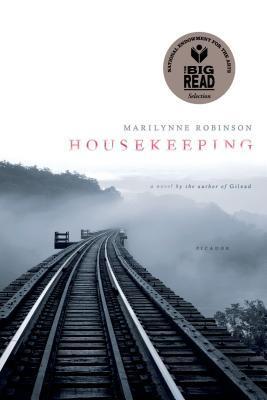Housekeeping
Next weekend I’ll be facilitating a discussion about Marilynne Robinson’s Housekeeping for The Big Read. (Details here, thanks to Lighthouse, which is coordinating all the events.) Housekeeping is one of my favorite books, bar none, and I think Marilynne Robinson’s one of the best who ever put words on paper.
Anyway, the last few days I’ve been reading through interviews with her, getting to know her process a little better. And getting awestruck by the depth of her compassion and intelligence. The following are just a few quotes about character (and one about solitude) from an interview she did with the The Paris Review. I think I’m going to be spending a long time chewing on them.
I feel strongly that action is generated out of character. And I don’t give anything a higher priority than character. The one consistent thing among my novels is that there’s a character who stays in my mind. It’s a character with complexity that I want to know better.
. . .
Calvin says that God takes an aesthetic pleasure in people. There’s no reason to imagine that God would choose to surround himself into infinite time with people whose only distinction is that they fail to transgress. King David, for example, was up to a lot of no good. To think that only faultless people are worthwhile seems like an incredible exclusion of almost everything of deep value in the human saga. Sometimes I can’t believe the narrowness that has been attributed to God in terms of what he would approve and disapprove.
. . .
People are frightened of themselves. It’s like Freud saying that the best thing is to have no sensation at all, as if we’re supposed to live painlessly and unconsciously in the world. I have a much different view. The ancients are right: the dear old human experience is a singular, difficult, shadowed, brilliant experience that does not resolve into being comfortable in the world. The valley of the shadow is part of that, and you are depriving yourself if you do not experience what humankind has experienced, including doubt and sorrow. We experience pain and difficulty as failure instead of saying, I will pass through this, everyone I have ever admired has passed through this, music has come out of this, literature has come out of it. We should think of our humanity as a privilege.
. . .
I don’t think I could want something else. For instance, I’m kind of a solitary. This would not satisfy everyone’s hopes, but for me it’s a lovely thing. I recognize the satisfactions of a more socially enmeshed existence than I cultivate, but I go days without hearing another human voice and never notice it. I never fear it. The only thing I fear is the intensity of my attachment to it. It’s a predisposition in my family. My brother is a solitary. My mother is a solitary. I grew up with the confidence that the greatest privilege was to be alone and have all the time you wanted. That was the cream of existence. I owe everything that I have done to the fact that I am very much at ease being alone. It’s a good predisposition in a writer. And books are good company. Nothing is more human than a book.




